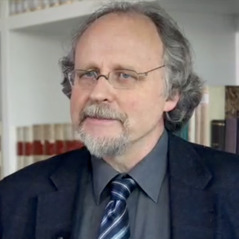Rather they must continue in prayer and endurance, or there is a vindication for Jehovah's Witnesses in Russia accused of extremism will be seen today.
Some articles in relation to Jehovah's Witnesses in Russia:
https://translate.google.co.uk/translate?hl=&sl=ru&tl=en&u=https%3A%2F%2Fjw-russia.org
On July 17, 2017, at 11:00 am, a panel of three Supreme Court judges begins consideration of an appeal against the decision of the same court to liquidate all 396 organizations of Jehovah's Witnesses in Russia.There is a report from the courtroom .
A 4-minute English version of the video about a growing wave of violence, pogroms, arson, vandalism, confiscation of personal belongings, insulting religious feelings of believers in the most vile form.
A 2-minute English version of the video about a growing wave of violence, pogroms, arson, vandalism, confiscation of personal belongings, insulting religious feelings of believers in the most vile form.
APRIL 3, 2017
RUSSIA
On April 5, 2017, the Supreme Court of the Russian Federation is expected to rule on whether to liquidate and ban the activity of all legal entities used by Jehovah’s Witnesses throughout Russia. A ruling against the Witnesses would criminalize their worship. Several human rights experts from Russia and abroad comment on the unjust actions of Russian authorities and how a ban on Jehovah’s Witnesses would affect not only the Witnesses but also Russia’s international reputation and religious freedom for its citizens.
Heiner Bielefeldt: “If Jehovah’s Witnesses are extremist, I think we all are.”
Former UN Special Rapporteur on Freedom of Religion or Belief
Richard Clayton, QC: “It’s a shocking example of a bad law being used for a worse purpose.”
International Human Rights Lawyer and UK Representative on the Venice Commission
Dr. Massimo Introvigne: “The only relationship between Jehovah’s Witnesses and violence is that they have been victims of violence.”
Sociologist and Former Representative of the OSCE on Combating Racism, Xenophobia, Discrimination
Annika Hvithamar: ‘If Jehovah’s Witnesses are extremist, then most versions of Christianity could be accused of the same thing.’
Associate Professor/Head of Studies, Department of Cross-Cultural and Regional Studies, University of Copenhagen
Lyudmila Alekseyeva: “Not just a mistake—I think it is a crime.”
Chairwoman of the Moscow Helsinki Group, Member of the Russian Presidential Council for Civil Society and Human Rights
Anatoly Vasilyevich Pchelintsev: “Let’s speak out for Jehovah’s Witnesses!”
Editor in Chief of the Journal Religion and Law
Vladimir Vasilyevich Ryakhovskiy: “It has always started with Jehovah’s Witnesses and then spread to everyone else.”
Member of the Presidential Council for Civil Society and Human Rights
Maksim Shevchenko: “This claim violates fundamental principles of freedom of conscience.”
President of the Center for Strategic Study of Religions and Politics of the Modern World
Dr. Hubert Seiwert: ‘All accusations against Jehovahˊs Witnesses presented at the many court hearings were unfounded.’
Professor at the Institute of Religious Studies at the University of Leipzig
Mercedes Murillo Muñoz: “The State has great confidence in this denomination.”
Professor of Ecclesiastical Law at the University of King Juan Carlos (Spain)
Consuelo Madrigal: “I do not consider [Jehovah’s Witnesses] to be dangerous at all.”
Lawyer and Former Attorney General of Spain
Yes, it may have an affect on other religions as well.
Thanks for your answer.
They have been through similar persecution their before with most being sent to Siberia.
Here's more from a recent article about the not to distant past:
*** kr chap. 15 pp. 158-159 pars. 7-8 Fighting for Freedom to Worship ***
Russia. Jehovah’s Witnesses spent decades under Communist ban but were finally registered in 1991. After the breakup of the former Soviet Union, we were granted legal recognition in the Russian Federation in 1992. Before long, however, some opposers—particularly those associated with the Russian Orthodox Church—were unnerved by the rapid growth in our numbers. Opposers filed a series of five criminal complaints against Jehovah’s Witnesses between 1995 and 1998. Each time, the prosecutor found no evidence of wrongdoing. The determined opposers then filed a civil complaint in 1998. The Witnesses prevailed at first, but the opposers rejected the verdict and the Witnesses lost on the appeal in May 2001. A retrial began in October of that year, leading to a decision in 2004 to liquidate the registered legal entity that the Witnesses use in Moscow and ban its activities.
8 A wave of persecution followed. (Read 2 Timothy 3:12.) Witnesses faced harassment and assault. Religious literature was confiscated; renting or building houses of worship was severely restricted. Imagine how our brothers and sisters felt as they faced those hardships! The Witnesses had applied to the European Court of Human Rights (ECHR) in 2001, and they submitted additional information to the Court in 2004. In 2010, the ECHR reached its decision. The Court saw clearly that religious intolerance was behind Russia’s ban on the Witnesses and ruled that there was no reason to uphold the decisions of the lower courts, since there had been no evidence of wrongdoing on the part of any Witnesses. The Court further noted that the ban was designed to strip the Witnesses of their legal rights. The Court’s decision upheld the Witnesses’ right of freedom of religion. Although various Russian authorities have failed to comply with the ECHR ruling, God’s people in that land have drawn great courage from such victories.
The appeal was denied:
https://www.newsweek.com/jehovahs-witnesses-russia-ban-appeal-637816